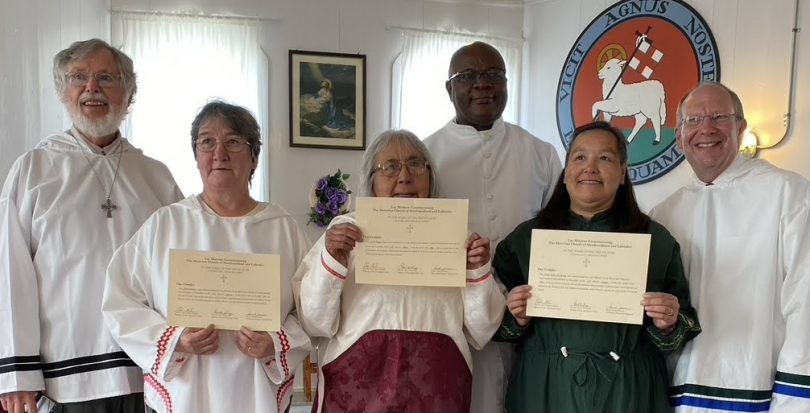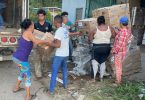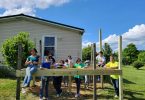Upside-Down Once Again
By Bishop Chris Giesler
Preaching text: Luke 17:11-19
Following a consistent theme in Luke’s Gospel, this week’s text only reinforces that Jesus is here to reverse fortunes, turn tables over, and flip the world upside down. Indeed, the last shall be first, and the first shall be last in the kingdom of God.
This week we find that Jesus is continuing his journey towards Jerusalem, passing along the border between Samaria and Galilee. There Jesus enters a village where ten lepers greet him. It is interesting to note that in Luke’s description, it is the lepers who approach Jesus and call him by name. These unfortunate souls seem to know who Jesus is and that he might be able to heal them. “Have mercy on us” is their plea. Jesus tells them to go immediately to the priests who would have been the ones to declare the men clean and thereby be able to re-enter society. We don’t know when or how all of this happened, but they are made clean. Luke goes on to note that only one of these men came back to thank Jesus, and it was the Samaritan.
With this in mind, let’s look at the borders that Jesus is stepping across. First, Jesus is geographically stepping into the area bordering Galilee and Samaria. Next, as these lepers approach Jesus, he does not shun them away; instead, he steps into their space and becomes the agent in their healing. Lepers were shunned not only because their disfiguring disease made them repulsive but because they were also thought to be highly contagious. Worst of all, it was felt that their disease resulted from divine punishment for something they must have done. And then Luke takes us over one more border by stressing that it is only the Samaritan leper that returns to give thanks, while the Hebrew lepers seem to have gone home.
Let us be clear that in almost all the healing stories in the Gospels, there is an indication that healing comes through a two-way street. Jesus often heard to say, “your faith has made you well.” Jesus says the same thing to this Samaritan. Healing not only requires God’s work but also takes a heart of faith on the part of the one who receives the healing. Let’s at least give that credit to the other nine former-lepers. They all recognized who Jesus was. They all asked for mercy. They all went to the priests as instructed. And all of them were healed. Their faith made all of them well. That the Samaritan is the only one that returned to give thanks is extra credit. But by hearing of this effort, we, the reader, are most definitely being invited to follow Jesus across another border. There is the geographical border, the border of disease, and then the border of religion. The Samaritan leper had not only the pain, suffering, and stigma of leprosy but also his ethnic background to contend with. He was seen as a religious heretic who deserved the plight from which he suffered.
This begs the question for us: how many borders are we willing to cross? As we follow Jesus, is it not our mission to step across the borders that separate us from others? In your town, is it the other side of the river? The other side of the train tracks? The other side of the highway? The downwind side of the factories? Are we willing to step across the borderlines of color and language? Are we being asked to step across the invisible and misunderstood lines of human sexuality?
Sharing the love of Christ in word and deed requires us to leave the sanctuary, our church campuses, and even our side of town to touch the lives of others. It requires us to let Jesus turn our world upside down. Thanks be to God.







